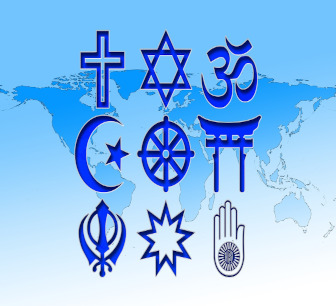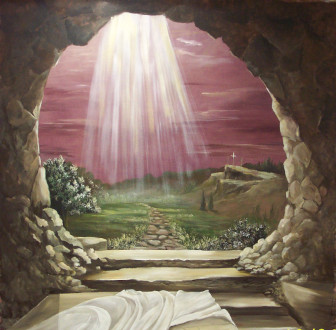Click below to listen to and or read along with teaching.
God’s Spirit Fragmented and Dwelling Our Mind, Creates Unity of Religious Experience.
Religion is Personal.
The unity of religious experience among [….] a social or racial group derives from the identical nature of the God fragment “indwelling the individual”.
Note: “Indwelling the individual” is the placement of a fragment of God’s spirit in our mind. The God fragment is called the “Thought Adjuster or Spirit Monitor by the celestial in this writing. Jesus calls God’s fragment: the “Holy Spirit, our teacher, guide, interpreter/re interpreter” in “A Course In Miracles”.
Continuing, the celestial tells us;
“It is this Divine in man that gives origin to his unselfish interest in the welfare of other men. But since personality is unique, no two mortals being alike, it inevitably follows that no two human beings can similarly interpret the leadings and urges of the spirit of divinity which lives within their minds.
A group of mortals can experience spiritual unity, but they can never attain philosophic uniformity.” …. 103:1.1 (1129.8)
In reality, every human being defines religion in the terms of his own experiential interpretation of the divine impulses emanating from the God spirit that indwells him, and therefore must, an interpretation be unique and wholly different from the religious philosophy of all other human beings.
When one mortal is in full agreement with the religious philosophy of a fellow mortal, that phenomenon indicates that these two beings have had a similar religious experience touching the matters concerned in their similarity of philosophic religious interpretation. 103:1.2 (1130.1)
While your religion is a matter of personal experience, it is most important that you should be exposed to the knowledge of a vast number of other religious experiences (the diverse interpretations of other and diverse mortals) to the end that you may prevent your religious life from becoming egocentric—circumscribed, selfish, and unsocial. 103:1.3 (1130.2)
Rationalism is wrong when it assumes that religion is at first a primitive belief in something which is then followed by the pursuit of values. Religion is primarily a pursuit of values, and then there formulates a system of interpretative beliefs. It is much easier for men to agree on religious values—[goals]—than on beliefs—[interpretations].
And this explains how religion can agree on values and goals while exhibiting the confusing phenomenon of maintaining a belief in hundreds of conflicting beliefs… creeds. This also explains why a given person can maintain his religious experience in the face of giving up or changing many of his religious beliefs.
Religion persists in spite of revolutionary changes in religious beliefs. Theology does not produce religion; it is religion that produces theologic philosophy. 103:1.4 (1130.3)
That religionists have believed so much that was false does not invalidate religion because religion is founded on the recognition of values and is validated by the faith of personal religious experience.
Religion, then, is based on experience and religious thought; theology, the philosophy of religion, is an honest attempt to interpret that experience. Such interpretative beliefs may be right or wrong, or a mixture of truth and error. 103:1.5 (1130.4)
The realization of the recognition of spiritual values is an experience which is super-ideational. There is no word in any human language which can be employed to designate this “sense,” “feeling,” “intuition,” or “experience” which we have elected to call God-consciousness.
The spirit of God that dwells in man is not personal, the Adjuster is pre-personal, but this Monitor presents a value, exudes a flavor of divinity, which is personal in the highest and infinite sense. If God were not at least personal, he could not be conscious, and if not conscious, then would he be infra-human. 103:1.6 (1130.5)
When a moral being chooses to be unselfish when confronted by the urge to be selfish, that is primitive religious experience. No animal can make such a choice; such a decision is both human and religious. It embraces the fact of God-consciousness and exhibits the impulse of social service, the basis of the brotherhood of man.
When mind chooses a right moral judgment by an act of the free will, such a decision constitutes a religious experience. 103:2.8 (1131.7)
The religions of authority can only divide men and set them in conscientious array against each other.
The religion of the spirit will progressively draw men together and cause them to become understandingly sympathetic with one another.
The religions of authority require of men uniformity in belief, but this is impossible of realization in the present state of the world.
The religion of the spirit requires only unity of experience, uniformity of destiny, and making full allowance for diversity of belief.
The religion of the spirit requires only uniformity of insight, not uniformity of viewpoint and outlook.
The religion of the spirit does not demand uniformity of intellectual views, only unity of spirit feeling.
The religions of authority crystallize into lifeless creeds; the religion of the spirit grows into the increasing joy and liberty of ennobling deeds of loving service and merciful ministration. 155:6.9 (1732.2)

